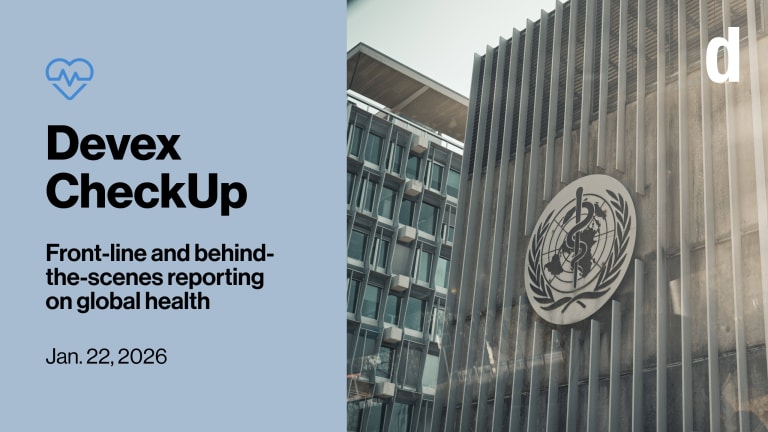
As more than 1,000 global leaders in land rights gather in Washington, D.C., next week for the annual World Bank Land and Poverty conference, there will, no doubt, be much discussion focused on gathering data to measure global progress toward documenting and strengthening land rights for all women and men.
But it is critical for us to also recognize and discuss the enormous potential for this same data — when made public and accessible — to empower communities.
When governments open their data on land use, including rights and concessions, conservationists and indigenous communities can see what land is protected and what land is under threat. Farmers can gain confidence seeing that their rights are properly documented. Banks can confirm who has documented rights and provide loans to support the purchase of better quality seeds and fertilizer. And agricultural extension agents can identify and support smallholder farmers’ and indigenous communities’ sustainable use of their land.
Currently, we are far from this goal. The rights to 70 percent of the land in emerging economies remain undocumented. The land and resource rights documentation that exists is often outdated or incorrect. And, critically, these records are rarely accessible to the public. In fact, according to the Open Data Barometer Report, land-related data is among the datasets least likely to be open. The report maintains land data is, “Rarely available online, difficult to find when available and quite frequently behind paywalls.”
Paywalls limit the number of businesses that can build services based on the information. And it reinforces the status quo of those who have power derived from access to information and those who don’t.
As progressive governments and the international development community tap innovative new technologies to document and strengthen land rights, they need to discuss and assess — at the onset of their activities — the benefits and risks of opening much or all of that data to the public.
We recognize that best practices cannot simply be based on protocols in advanced economies. Releasing an owner’s name in a highly developed and relatively equitable country can help prevent corruption. But revealing the same information in a country with less formal land documentation or high rates of inequality can result in the dispossession or displacement of vulnerable communities.
That said, opening all or some of the data to the public cannot be dismissed out of hand as being too risky.
There are compelling reasons for opening up land records, as appropriate, to the public:
1. Increase prosperity
Open and accessible land and property records make land transactions easier — removing barriers to development. Ten years ago, transferring property in Rwanda took more than a year. Today, with a web-based land administration system, this process takes about a month.
2. Reduce corruption
Open and accessible land and property records allow individuals to access the information they need without officials acting as “gatekeepers.” Transparency International found that 1 in 5 people across the globe have paid a bribe for land services. That can put land administration services out of reach for poor people who may not be able to afford illegal payments.
3. Increase tax revenue
Open and accessible land and property records help ensure governments collect property taxes from all owners. In Jamaica, the government’s own records on land are so outdated that the government is estimated to be collecting only about 10 percent of the total potential property tax revenue.
4. Prevent theft
Open and accessible land and property records are more secure and less easily tampered with. After years of witnessing thefts of beachfront property by bureaucrats, Estonia is implementing an open and secure land registration system.
5. Strengthen disaster response
Open and accessible land and property records can help humanitarian organizations map and contain epidemics and prepare for and respond to natural disasters. In the aftermath of Hurricane Katrina, the lack of an open and accessible data on property owners delayed the U.S. Federal Emergency Management Agency’s payments to displaced storm victims.
6. Improve health
Open and accessible land and property records can highlight areas in need of government services. Slum Dwellers International is using land and housing data collected in slums in more than 30 countries to determine where sanitation, water and garbage services are needed.
7. Promote conservation
Open land and property records can be connected to other data in layered maps to reveal where protected areas or indigenous communities’ claims to land are threatened. An initiative in the Democratic Republic of Congo uses datasets to create layered maps that show natural resource claims, existing forests, roads and the boundaries of indigenous lands to identify potential conflicts and proactively protect natural resources and communities.
8. Support sustainable sourcing
Open and accessible land and property rights records are a first step toward certifying a sustainable value chain. The Roundtable on Sustainable Palm Oil needs access to land and property records to certify that its palm oil producers are farming sustainably and not clearing rainforest.
9. Increase efficiency
Open and accessible land and property rights records can create efficiencies. In 2008, the Florida Department of Environmental Protection estimated that it could save more than 15,000 hours each year if it had access to local government land parcel data, instead of having its staff make site visits to contact owners.
10. Improve public safety
Open and accessible land and property records can make construction safer by ensuring that the locations of dangerous gas or electric lines are easily accessed. In Sweden, an open and accessible database combines property information with land planning information to help property owners quickly and easily determine where on their property is it safe to dig and build.
For more Devex coverage on land matters, visit Focus On: Land Matters








